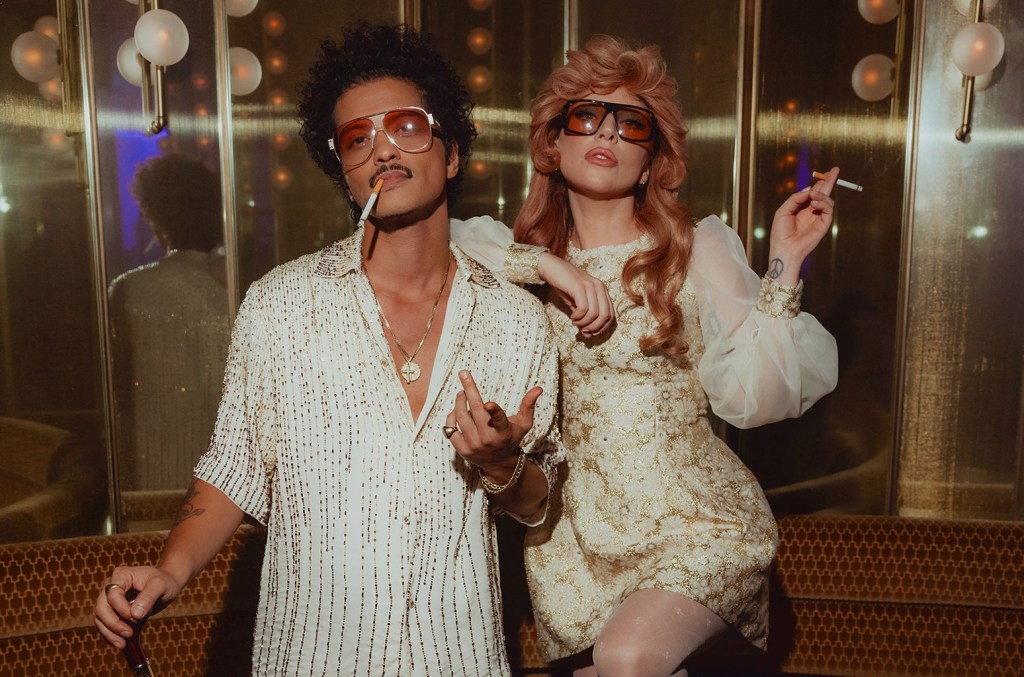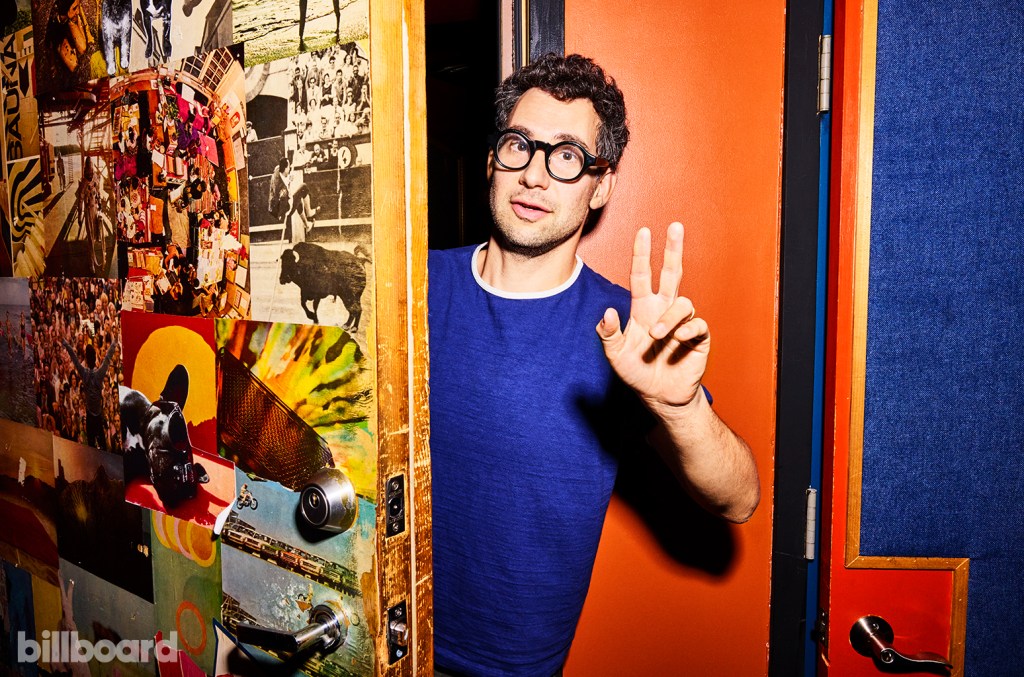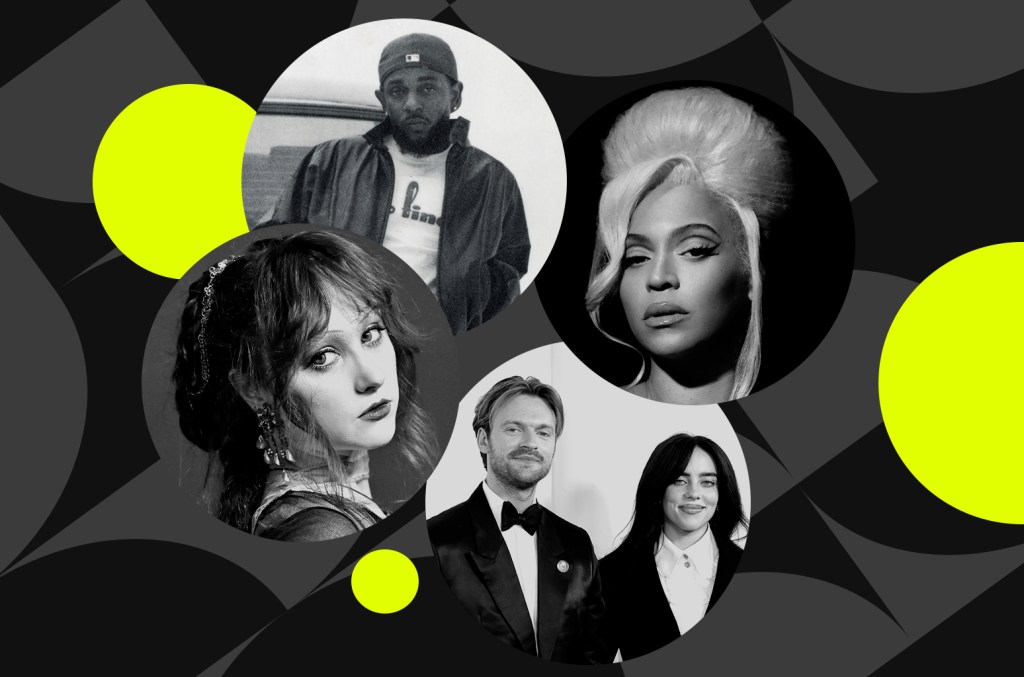grammy awards
Page: 4
The Recording Academy announced on its social media channels Friday (Jan. 31) that Lady Gaga & Bruno Mars and Shaboozey are performing on the 2025 Grammy Awards, set for Sunday. Gaga and Mars will “perform a special tribute to the city of Los Angeles and those affected by the wildfires” that devastated parts of the city in January.
The academy usually holds one or two big names until the last minute to build up buzz and excitement. These artists certainly qualify. Gaga & Mars’ swoon-worthy ballad “Die With a Smile” has been No. 1 on the Billboard Hot 100 for the past four weeks. Shaboozey’s “A Bar Song (Tipsy)” logged 19 weeks at No 1 on that chart last year, tying the all-time record in the chart’s 68-year history.
Trending on Billboard
With Shaboozey being added to the lineup, seven of the eight nominees for best new artist will be performing on the telecast: Benson Boone, Chappell Roan, Doechii, RAYE, Sabrina Carpenter, Shaboozey and Teddy Swims. (The eighth best new artist nominees, Khruangbin, have not been announced as performers.)
Shaboozey is nominated for five Grammys, including record of the year. Gaga & Mars are nominated for two, including song of the year. The Gaga/Mars smash was released Aug. 16, 2024, just two weeks before the end of the Grammy eligibility year. If it had more time to fully blossom before Grammy balloting was under way, it might well have also received a coveted record of the year nod.
Live from Crypto.com Arena in L.A. and hosted by Trevor Noah, Music’s Biggest Night will be broadcast live on Sunday (Feb. 2) at 8 p.m. ET/5 p.m. PT on CBS. The show will also be available to stream live and on demand on Paramount+.
This year’s telecast will carry an added sense of purpose: raising funds to support L.A. wildfire relief efforts and honoring the bravery and dedication of first responders.
A series of special performances will highlight the show, including a salute to the life and legacy of Grammy legend Quincy Jones, tributes to the spirit of Los Angeles, and the annual In Memoriam segment.
This is the fifth consecutive year that Noah has hosted the show. He will become the first comedian to host the Grammys five times. He’s also a Grammy nominee for best comedy album for Where Was I. If he wins, he’ll become just the second Grammy host to win on a night that he or she hosted. Kenny Rogers was the first, in 1980.
The 67th Annual Grammy Awards will be produced by Fulwell 73 Productions for the Recording Academy for the fourth consecutive year. Ben Winston, Raj Kapoor and Jesse Collins are executive producers.
This year’s Premiere Ceremony, where the vast majority of Grammys are presented, will stream live at 3:30 p.m. ET/12:30 p.m. PT on the Recording Academy’s YouTube channel and on the Grammy website. The show will be held at Peacock Theater in the LA Live complex in Los Angeles (which also encompasses Crypto.com Arena). Justin Tranter, a Grammy nominee for song of the year for co-writing Chappell Roan’s “Good Luck, Babe,” is set to host the Premiere Ceremony for the second year in a row.
The Recording Academy awarded Jack Antonoff one additional 2025 Grammy nomination this week – as one of 11 engineers on Sabrina Carpenter’s Short n’ Sweet, which is nominated for best engineered album, non-classical. This is Antonoff’s first nomination in an engineering category and brings his career nominations total to an even 30.
Final-round Grammy voting ended on Jan. 3, so Antonoff’s name didn’t appear on the ballot in that category, but he will take home a Grammy on Sunday (Feb. 2) if the album wins in that category.
Trending on Billboard
Antonoff has five other nominations this year – record of the year for producing the Taylor Swift/Post Malone collab “Fortnight,” two for song of the year for co-writing “Fortnight” and Carpenter’s “Please Please Please,” and two for album of the year for his contributions to Short N’ Sweet and Swift’s The Tortured Poets Department.
Antonoff’s 2024-25 Grammy season got off to a surprisingly rough start. His failure to land a nomination for producer of the year, non-classical, a category he had won the last three years running, was widely considered the biggest snub in this year’s nominations – and is hard to reconcile with his bounty of nominations in other marquee categories. He’s the only producer with credits on two album of the year nominees this year. It appears that the members of the National Craft Nominating Committee, which selected the five nominees for producer of the year, non-classical, just decided that Antonoff has been rewarded enough in this category, at least for now.
The 67th Grammy Awards Rules & Guidelines handbook says “the first round of voting [in this category] is in the hands of the general voting membership via the first ballot. The second round of voting, however, takes place in a national craft nominating committee. The top 30 selections from the general voting membership…appear on the ballot for the national craft nominating committees, made up of 25-35 voting members representing all the chapters, to vote by confidential ballot to select the five nominations.”
Antonoff’s six nominations this year are evenly split between his work with Swift and Carpenter – three for work with each artist. Over the course of his career, he has received 11 nominations specifically for his work with Swift; six with fun., the pop trio in which he rose to fame; four with Lana Del Rey; three with Carpenter; two with St. Vincent; and one apiece with Lorde and Zayn. (The former One Direction star teamed with Swift for the duet “I Don’t Wanna Live Forever” from Fifty Shades Darker, which was nominated for best song written for visual media.)
By category, Antonoff has received 10 album of the year nominations; six for song of the year; five for producer of the year, non-classical; three for record of the year; two for best pop vocal album; and one each for best new artist, best pop duo/group performance, best song written for visual media, best rock song and best alternative music album.
Antonoff, 40, has won 11 Grammys.
Here’s the updated list of nominations for best engineered album, non-classical. The artist’s name at the end of each listing is shown just for identification purposes.
AlgorithmDernst Emile II, Michael B. Hunter, Jordan Johnson, Stefan Johnson, Rachel Keen, John Kercy, Charles Moniz & Todd Robinson, engineers; Colin Leonard, mastering engineer (Lucky Daye)
Cyan BlueJack Emblem, Jack Rochon & Charlotte Day Wilson, engineers; Chris Gehringer, mastering engineer (Charlotte Day Wilson)
Deeper WellCraig Alvin, Shawn Everett, Mai Leisz, Todd Lombardo, John Rooney, Konrad Snyder & Daniel Tashian, engineers; Greg Calbi, mastering engineer (Kacey Musgraves)
EmpathogenBeatriz Artola, Zach Brown, Oscar Cornejo, Chris Greatti, Mitch McCarthy, Adam Schoeller & Willow Smith, engineers; Joe LaPorta, mastering engineer (WILLOW)
i/oTchad Blake, Oli Jacobs, Katie May, Dom Shaw & Mark “Spike” Stent, engineers; Matt Colton, mastering engineer (Peter Gabriel)
Short n’ SweetJack Antonoff, Bryce Bordone, Julian Bunetta, Serban Ghenea, Jeff Gunnell, Oli Jacobs, Ian Kirkpatrick, Jack Manning, Manny Marroquin, John Ryan & Laura Sisk, engineers; Nathan Dantzler & Ruairi O’Flaherty, mastering engineers (Sabrina Carpenter)
The 67th annual Grammy Awards are here at last. A few weeks ago, the thought of an awards show in Los Angeles, where entire neighborhoods went up in flames, seemed unthinkable. But the Recording Academy withstood considerable pressure to postpone or even cancel the show in light of this month’s devastating wildfires, so here we are.
Live from Crypto.com Arena in L.A. and hosted by Trevor Noah, Music’s Biggest Night will be broadcast live on Sunday (Feb. 2) at 8 p.m. ET/5 p.m. PT on CBS. The show will also be available to stream live and on demand on Paramount+.
This year’s show will put a spotlight on new artists. Six of this year’s best new artist nominees – Benson Boone, Chappell Roan, Doechii, Raye, Sabrina Carpenter and Teddy Swims – are set to perform. (The other two best new artist nominees, Shaboozey and Khruangbin, have not been announced as performers.)
Trending on Billboard
Other performers on the telecast include Billie Eilish (who won best new artist five years ago), Charli XCX and Shakira.
The Recording Academy usually reserves one or two really big names to announce closer to the show. Among the top nominees not yet announced as performers are: Beyoncé, Kendrick Lamar, Taylor Swift (with or without Post Malone) and Lady Gaga & Bruno Mars.
Beyoncé, who led this year’s nominations with 11 nods, last performed on the Grammys in 2017. Swift, who received six nods, last performed on the show in 2021. A promo for the show which aired on CBS confirmed that they will be in attendance at the show, but not that they will perform. Gaga and Mars, whose twice-nominated “Die With a Smile” is in its fourth week atop the Billboard Hot 100, have performed on the telecast separately many times.
Lamar, who has seven nods, last performed on the Grammy telecast in 2018, when he opened the show in tandem with U2 and comedian Dave Chappelle. A Grammy performance this year is unlikely: Lamar is set to headline the Super Bowl halftime show on Feb. 9.
This year’s telecast will carry an added sense of purpose: raising funds to support L.A. wildfire relief efforts and honoring the bravery and dedication of first responders. A series of special performances will highlight the show, including a salute to the life and legacy of Grammy legend Quincy Jones, tributes to the spirit of Los Angeles, and the annual In Memoriam segment.
Swift, who won album of the year at the 2024 Grammy Awards, and Victoria Monét, who won best new artist on that show, are set to present on this year’s show. Other presenters, announced Friday, are Anthony Kiedis & Chad Smith of the Red Hot Chili Peppers, Cardi B, Gloria Estefan, Olivia Rodrigo, Queen Latifah, SZA and Will Smith.
Smith will introduce the salute to Jones. Jones was executive producer of the hit sitcom The Fresh Prince of Bel-Air which ran from 1990-96 on NBC and propelled Smith to stardom.
Jones, who died in November at age 91, won 28 Grammys across six different decades, from the 1960s to the 2010s. He was a friend and mentor to generations of talented artists, including Herbie Hancock, Stevie Wonder, John Legend and Jacob Collier, all of whom are set to appear on the show.
This is the fifth consecutive year that Noah has hosted the show. He will become the first comedian to host the Grammys five times. He’s also a Grammy nominee for best comedy album for Where Was I. If he wins, he’ll become just the second Grammy host to win on a night that he or she hosted. Kenny Rogers was the first, in 1980.
The 67th Annual Grammy Awards will be produced by Fulwell 73 Productions for the Recording Academy for the fourth consecutive year. Ben Winston, Raj Kapoor and Jesse Collins are executive producers.
This year’s premiere ceremony, where the vast majority of Grammys are presented, will stream live at 3:30 p.m. ET/12:30 p.m. PT on the Recording Academy’s YouTube channel and on the Grammy website. The show will be held at Peacock Theater in the LA Live complex in Los Angeles (which also encompasses Crypto.com Arena). Justin Tranter, a Grammy nominee for song of the year for co-writing Chappell Roan’s “Good Luck, Babe,” is set to host the premiere ceremony for the second year in a row.
Check out the full list of performers and presenters on the main Grammy telecast below. For a summary of performers and presenters on Premiere Ceremony, go here.
Performers
Benson Boone
Billie Eilish
Chappell Roan
Charli XCX
Doechii
RAYE
Sabrina Carpenter
Shakira
Teddy Swims
Performers, Tribute Segments
Brad Paisley
Brittany Howard
Chris Martin
Cynthia Erivo
Herbie Hancock
Jacob Collier
Janelle Monáe
John Legend
Lainey Wilson
Sheryl Crow
St. Vincent
Stevie Wonder
Presenters
Anthony Kiedis & Chad Smith
Cardi B
Gloria Estefan
Olivia Rodrigo
Queen Latifah
SZA
Taylor Swift
Victoria Monét
Will Smith
We all knew that Taylor Swift would be in the house for the 2025 Grammys, which are set for Sunday (Feb. 2), because she was named in a CBS promo for the show. But now we learn that she will have an official role on the show – as a presenter. Swift is the first presenter to be announced for the show. More are expected on Friday (Jan. 31).
Swift, of course, may also win one or more Grammys on the show, which is being held at Crypto.com Arena in Los Angeles. She is nominated in six categories, including the top three awards – album, record and song of the year. She is vying to win album of the year for what would be a record-extending fifth time with her smash album The Tortured Poets Department, which topped the Billboard 200 for 17 nonconsecutive weeks.
Of the 14 previous years where Swift has been a Grammy nominee, she has headed home with at least one award exactly half the time. And in years where she has gone into the show with six or more nominations, as she has this year, she has never been shut out. In 2010, when she had eight nominations, she won four. In 2015, when she had seven nominations, she won three. In 2021, when she had six nominations, she won one. And last year, when she had six nominations, she won two. Here’s a mind-blowing fact: In all four of the previous years where she had six or more nods, she won album of the year.
Trending on Billboard
Swift’s other nominations this year are record and song of the year and best music video for “Fortnight,” a collaboration with Post Malone; best pop vocal album for The Tortured Poets Department, and best pop duo/group performance for Gracie Abrams’ “us.,” on which she is featured.
Live from Crypto.com Arena in L.A. and hosted by Trevor Noah, the 67th annual Grammy Awards will be broadcast live on Sunday (Feb. 2) at 8 p.m. ET/5 p.m. PT on CBS. The show will also be available to stream live and on demand on Paramount+.
This year’s telecast will carry an added sense of purpose: raising funds to support L.A. wildfire relief efforts and honoring the bravery and dedication of first responders.
A series of special performances will highlight the show, including a salute to the life and legacy of Grammy legend Quincy Jones, tributes to the spirit of Los Angeles, and the annual In Memoriam segment.
This is the fifth consecutive year that Noah has hosted the show. He will become the first comedian to host the Grammys five times. He’s also a Grammy nominee for best comedy album for Where Was I. If he wins, he’ll become just the second Grammy host to win on a night that he or she hosted. Kenny Rogers was the first, in 1980.
The 67th Annual Grammy Awards will be produced by Fulwell 73 Productions for the Recording Academy for the fourth consecutive year. Ben Winston, Raj Kapoor and Jesse Collins are executive producers.
This year’s Premiere Ceremony, where the vast majority of Grammys are presented, will stream live at 3:30 p.m. ET/12:30 p.m. PT on the Recording Academy’s YouTube channel and on the Grammy website. The show will be held at Peacock Theater in the LA Live complex in Los Angeles (which also encompasses Crypto.com Arena). Justin Tranter, a Grammy nominee for song of the year for co-writing Chappell Roan’s “Good Luck, Babe,” is set to host the Premiere Ceremony for the second year in a row.
HipHopWired Featured Video
Source: Rebecca Sapp / Getty
The music industry’s biggest night is shaping to be something special. Doechii has been confirmed to perform at the 2025 Grammy Awards.
As spotted on Rap-Up, the Recording Academy made their first round of announcements of musicians who will perform at the upcoming ceremony. Set to hit the stage are Benson Boone, Billie Eilish, Chappell Roan, Charli xcx, Doechii, RAYE, Sabrina Carpenter, Shakira, and Teddy Swims. All the aforementioned musicians are currently nominated for awards.
Doechii’s Alligator Bites Never Heal is up for the Best Rap Album and her song “NISSAN ALTIMA” is competing for Best Rap Performance. She also has the chance to take home the honor of Best New Artist. 2024 marked her breakthrough year with the success of her mixtape. Doechii’s 19-track effort was her first-ever project on Top Dawg Entertainment and featured several breakout singles including “Boom Bap,” and “Denial Is a River.”
The 67th Annual Grammy Awards will not only honor the very best in music but will also raise funds to help those who were impacted by the Los Angeles wildfires. “The upcoming Grammy Awards won’t just be about celebrating and honoring the best in music this year, it will also show how the power of music can help rebuild, uplift and support those in need,” said Recording Academy CEO Harvey Mason Jr. “We are thrilled that so many artists in our community are banding together at this time to show support for their fellow music makers and others impacted by the recent wildfires.”
The 67th Annual Grammy Awards will air Sunday, Feb. 2, 2025, at 8 p.m. ET/5 p.m. PT on CBS Television Network.
Current Grammy nominees Benson Boone, Billie Eilish, Chappell Roan, Charli XCX, Doechii, RAYE, Sabrina Carpenter, Shakira, and Teddy Swims are the first performers announced for the 67th Annual Grammy Awards. Additional performers will be announced in the coming days. Live from Crypto.com Arena in Los Angeles and hosted by Trevor Noah, the show will be […]
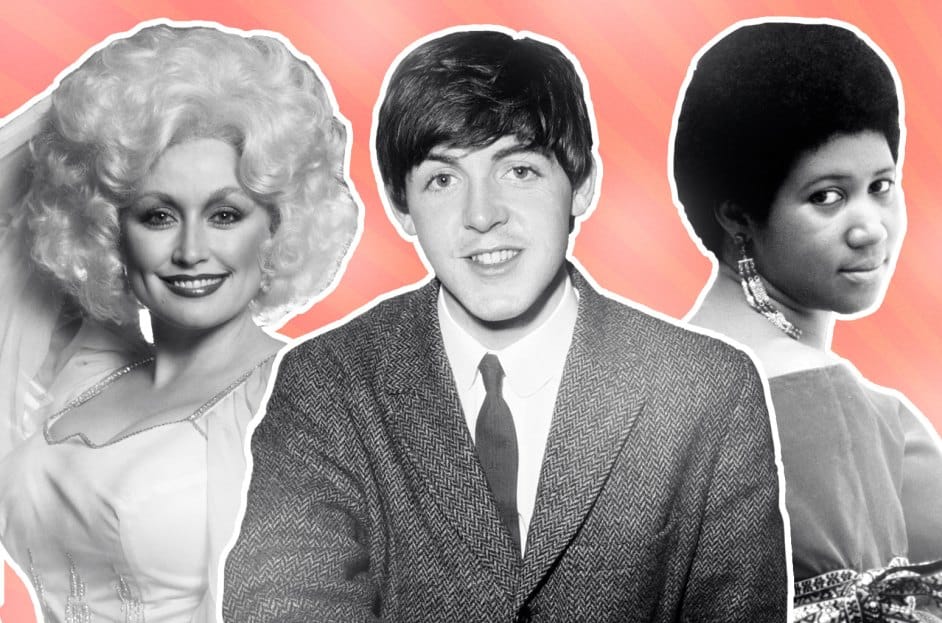
01/17/2025
Some artists amass a lot of nods in just a few years and are rarely nominated again. They aren’t on this list. These are the people who were in the game year after year.
01/17/2025
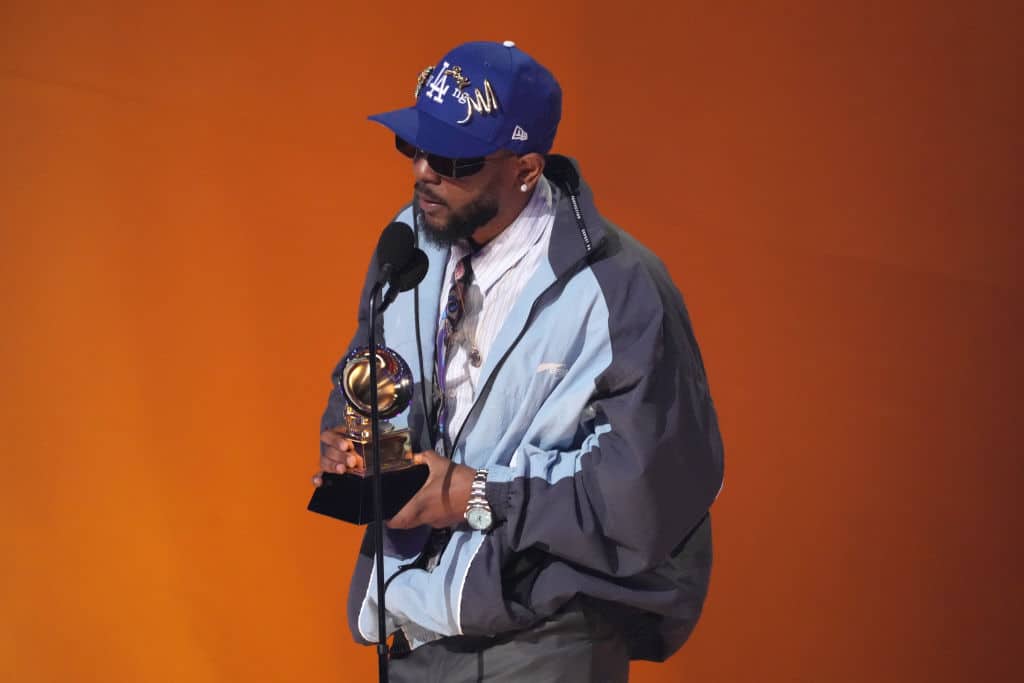
HipHopWired Featured Video
Source: Kevin Mazur / Getty / Grammy Awards
The 67th Annual Grammy Awards will be held on Sunday, February 2, at the Crypto.com Arena in Los Angeles.
Deadline confirmed the biggest night in music would not move its date, following in the steps of the Academy of Motion Picture Arts and Sciences, which also said it would be sticking by its March 2 Oscar ceremony date after having to move the nomination announcement twice, January 19 to now Thursday, January 23, due to ongoing L.A. wildfires.
A note from the Recording Academy revealed that this year’s awards show will raise additional funds to support wildfire relief efforts, honor the first responders battling the fires, and help those in need.
Here is the complete note from Harvey Mason Jr. and Tammy Hurt:
Dear Recording Academy Members,
Our hearts go out to everyone affected by the devastating wildfires in Los Angeles. This city is our home, and we mourn the loss of life and destruction that have come to it in recent days.
In response to this crisis, the Recording Academy and MusiCares launched the Los Angeles Fire Relief Effort last week with an initial $1 million donation to support music creatives and professionals. Thanks to additional contributions, we have already distributed over $2 million in emergency aid to those most in need – and we remain steadfast in our commitment to providing ongoing assistance.
In close coordination with local authorities to ensure public safety and responsible use of area resources, the 67th GRAMMY Awards telecast on CBS on February 2nd will proceed as planned. This year’s show, however, will carry a renewed sense of purpose: raising additional funds to support wildfire relief efforts and honoring the bravery and dedication of first responders who risk their lives to protect ours.
In challenging times, music has the power to heal, comfort, and unite like nothing else. The GRAMMYs will not only honor the artistry and achievements of our music community but also serve as a platform to amplify the spirit of resilience that defines this great city of Los Angeles.
With heartfelt concern,
Harvey Mason jr.
Recording Academy & MusiCares CEO
Tammy Hurt
Chair, Board of Trustees
The Grammys recently reached a new 10-year deal to stream with Disney streaming the award’s show on ABC, Hulu, and Disney+ from 2027 to 2036., ending the 50-year run on CBS.
Nominees: André3000’s New Blue Sun, Beyoncé’s Cowboy Carter, Sabrina Carpenter’s Short n’ Sweet, Charli XCX’s BRAT, Jacob Collier’s Djesse Vol. 4, Billie Eilish’s Hit Me Hard and Soft, Chappell Roan’s The Rise and Fall of a Midwest Princess, Taylor Swift’s The Tortured Poets Department
Analysis: All of these contenders were nominated in their “genre album” categories except for Collier’s album, which was passed over for a nod for best pop vocal album. That’s not a good sign: No album has won album of the year without at least being nominated in its genre album category since the introduction of genre album categories in the mid-1990s.
Cowboy Carter, which is nominated for best country album, would be the first country album to win album of the year since Kacey Musgraves’ Golden Hour six years ago. BRAT, nominated for best dance/electronic album, would be the first album from that genre to win album of the year since Daft Punk’s Random Access Memories in 2014. New Blue Sun, nominated for best alternative jazz album, would be the first jazz album to win album of the year since Herbie Hancock’s River: The Joni Letters in 2008.
Swift has won four times in this category. She won most recently just last year for Midnights. If she wins again, she’ll become the first five-time winner in this category and just the third act in Grammy history to win back-to-back awards in this category, following Frank Sinatra (1966-67) and Stevie Wonder (1974-75).
Eilish and André 3000 have each won once in this category, André 3000 as a member of OutKast. If he wins, he’ll become the third former member of a group or duo to win for a solo debut album, following George Michael (Faith, 1989) and Lauryn Hill (The Miseducation of Lauryn Hill, 1999).
Roan would be the first artist to win for their first studio album since Billie Eilish won five years ago for When We All Fall Asleep, Where Do We Go?
Cowboy Carter features a large and diverse cast of featured artists, including pop legends Paul McCartney and Stevie Wonder and country greats Willie Nelson and Dolly Parton. Other artists featured on the album include Miley Cyrus, Post Malone, Shaboozey, Jon Batiste, Gary Clark Jr., The-Dream, Rhiannon Giddens, Pharrell, Nile Rodgers and Raphael Saadiq. If those artists, and people in their camps, vote for Cowboy Carter, that could help make the difference in a close race.
On Christmas Day, midway through the final-round voting period (Dec. 12-Jan. 3), Bey headlined the halftime show at a Texans-Ravens NFL game in her hometown of Houston, Texas. This marked the first time she had performed songs from Cowboy Carter in front of a live audience. Millions watched the performance live on Netflix and millions more streamed it afterwards.
This is the second time Swift and Beyoncé have gone head-to-head in this category. In 2010, Swift’s Fearless beat Bey’s I Am…Sasha Fierce. For the record, Bey’s subsequent losses in this category were to Beck, Adele and Harry Styles.
Few consider Cowboy Carter to be Beyoncé’s best album, but she’s overdue for a win in this category. Many would howl if Swift won a record-extending fifth award in this category before Beyoncé won her first. It would probably be in Swift’s best interest to lose this year and to be seen graciously applauding and cheering for Beyoncé. Eight years ago, Adele probably would have been better just off winning record and song of the year for “Hello” (as she did) and losing album of the year to Beyoncé’s Lemonade. When she swept all three awards for the second time, while Bey was passed over for album of the year for the third time, it was an uncomfortable moment – though Adele’s graciousness and generosity in that moment was heartening to see.
If Swift loses on Feb. 2, she just might have dodged a bullet. Would a record-extending fifth win be worth the aggravation of a thousand pieces saying “Beyoncé was robbed – again”?
Prediction: Beyoncé, Cowboy Carter
Even before his death on Sunday (Dec. 29) at age 100, Jimmy Carter already seemed a shoo-in to win his fourth Grammy at the 67th Grammy Awards on Feb. 2. But with his death, his victory seems even more certain. Final-round Grammy voting continues through Friday (Jan. 3).
But one thing has changed with the former president’s death. Carter had seemed likely to set a new record as the oldest Grammy winner in history. Now, if he wins, the award will be posthumous. Technically, the oldest recipient will continue to be blues pianist Pinetop Perkins, who was 97 years and 221 days old on Feb. 13, 2011 when he won best traditional blues album for Joined at the Hip, a collab with Willie “Big Eyes” Smith, a blues harmonica player. (Perkins died about six weeks later, on March 21, 2011.)
Carter is nominated for best audio book, narration and storytelling recording for Last Sundays in Plains: A Centennial Celebration. The other nominees in the category are All You Need Is Love: The Beatles in Their Own Words (Guy Oldfield, producer), George Clinton’s …And Your Ass Will Follow, Dolly Parton’s Behind the Seams: My Life in Rhinestones and Barbra Streisand’s My Name Is Barbra. (Oldfield, 55, is the only nominee in this category who’s under 75. Parton is 78, Streisand is 82 and Clinton is 83.)
Trending on Billboard
This will likely be Carter’s fourth win in this category, which will enable him to break out of a tie with poet Maya Angelou for the most wins in the category. Carter won in 2007 for Our Endangered Values, in 2016 for A Full Life: Reflections at 90 and in 2019 for Faith: A Journey for All. Angelou won in 1994 for On the Pulse of Morning, in 1996 for Phenomenal Woman and in 2003 for A Song Flung Up to Heaven.
Carter will also likely extend his record as the U.S. president with the most Grammy wins. Bill Clinton and Barack Obama have each won two Grammys.
Carter was a late-comer to Grammy glory. He was 82 when he won his first Grammy. He had lost on his first three tries.
If you’re curious, the second-oldest person ever to win a Grammy is Tony Bennett, who was 95 years and 243 days old in 2022 when he won for best traditional pop vocal album for Love for Sale, a collab with Lady Gaga. (He died in 2023.) Third-oldest is comedian George Burns, who was 95 years and 31 days old in 1991 when he won best spoken word or non-musical recording album for Gracie: A Love Story, a salute to his wife and comedy partner Grace Allen. (He died in 1996.) Fourth-oldest is Carter, who was 94 and 132 days old in 2019 when he won best spoken word album for Faith: A Journey for All.

 State Champ Radio
State Champ Radio 